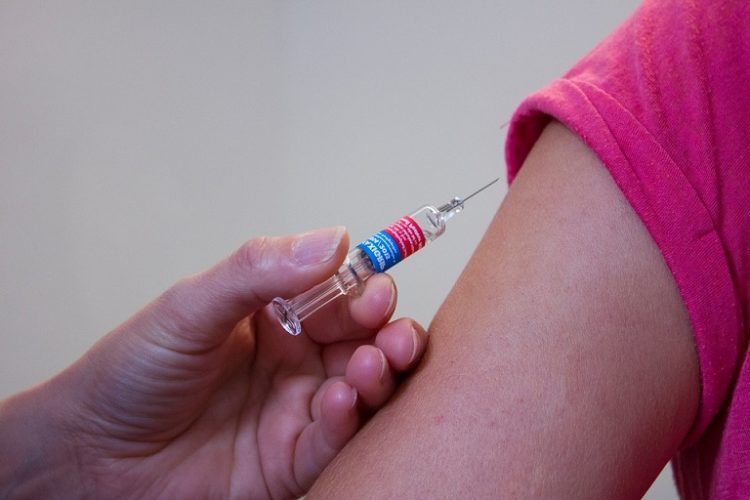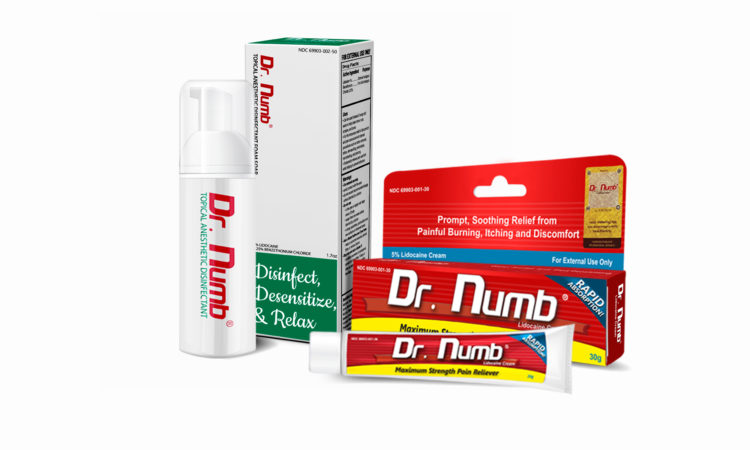Trypanophobia, or fear of needles, is a recognized phobia affecting approximately 50 million Americans, making it a top-ten American phobia. People who suffer from this phobia may experience various symptoms, such as elevated heart rate and blood pressure, even loss of consciousness and fainting, so Dr.Numb, the leading numbing cream brand, has prepared a short manual on how to overcome this fear.
Even though the majority of adults have experienced some sort of fear of needles at least once in their life, scientists are still unsure precisely what causes trypanophobia. It seems to be inherited, as an estimated 80% of adults who have the condition reported having a first-degree relative that suffers from the same phobia. On the other hand, some evolutionary psychologists believe that fear may be rooted in an ancient survival technique.
In most cases though, the fear of needles stems from the traumatic experiences in childhood. For example, when a child sees someone older fearing or crying when getting an injection; or a person himself experiences strong pain during immunization in childhood – some of these experiences may influence a person’s psychology for the rest of the life.

source:child-encyclopedia.com
The physical symptoms of needle phobia may trigger some deeper feelings, like general anxiety towards the medical community and rejection to visit the hospital and receive necessary vaccinations. In this case, it can be harmful to an individual’s health, because some patients with an extreme phobia may avoid treatment even when facing the prospect of death. Actually, the fear of needles is so intense that 20 percent of Americans don’t go for treatments just to avoid needles on their skin.
Fall season each year in the USA and Canada means the start of the vaccination: hospitals and drugstores offer flu shots for immunization. It is still one of the most effective ways to prevent the flu and flu-related complications such as pneumonia, and it also helps to reduce the severity of the symptoms, even if you do get the flu.

source:child-encyclopedia.com
Other immunization injections that help to save lives every year all over the world include measles, mumps, rubella, hepatitis B, polio, tetanus, diphtheria, and pertussis. In fact, vaccinations often mean a difference between life and death as nearly 50,000 US adults die from vaccine-preventable diseases in the US. On the other hand, most of these vaccinations are obligatory and through the years helped to almost eliminate cases of these severe diseases in certain countries. Workplace vaccination programs are a convenient way in which busy adults can keep up-to-date with their annual flu shot. Vitality Works helps businesses reduce staff absenteeism by managing vaccination programs through employee engagement and participation. They have put together an informative guide that answers the questions employees and employers ask about the flu vaccine.
It is especially important to go through all obligatory vaccination and immunization procedures with a newborn kid: this way the baby will be resistant to all kinds of infectious diseases, which otherways may be dangerous and difficult to cure. In order not to create a traumatizing experience, connected to injections, and to avoid needle phobia in the future, it is recommended to use a topical anesthetic when getting an immunization shot for a newborn. In some vaccinations, like tetanus, for example, the skin sometimes gets swelled up leaving the person in pain for the next 2-3 days, during which the person can still use numbing cream to reduce pain sensation.
It is extremely important to comply with medical recommendations and go through all necessary immunization procedures. Follow the simple techniques below to overcome fear and calm down before the injection.
Proper numbing may be the key to a smooth and painless experience, which is why it is important to use strong formula topical anesthetic. Apply the cream 20-30 minutes before the procedure, cover it with plastic, and when you arrive at the doctor’s office rest assured the skin will be properly numbed and you won’t experience any pain during the injection.

Among general tips, Dr.Numb also shares some advice on how to overcome the fear of needles:
- First, remember that vaccines are absolutely safe; they are rigorously tested before being made available. They protect you and the people you love.
- If your child is the one afraid of needles, try to talk them through their fear and lead by example – be the first to get an injection while using a numbing cream to prove that they won’t feel any pain;
- Apply numbing cream before your appointment. Touch the numbed area to make sure the anesthetic has taken its effect – this will help you realize you won’t feel any pain during the injection.
- If you feel like you could enter in panic at the appointment, try to practice a calming breathing technique: while sitting comfortably, breathe in slowly and deeply through your nose and out through your mouth;
- At the appointment, don’t be afraid to share your fears with the health professional that will be doing an injection: they can help you distract and relax during the conversation.
- Distract: don’t look at the needle if this is what makes you nervous. Bring with you a book or a magazine, or scroll through social media or your favorite photos to keep your attention away from the injection.
No matter which calming technique you will choose to overcome needle anxiety, always remember the importance of timely vaccination, for the sake of your health and your loved ones.





